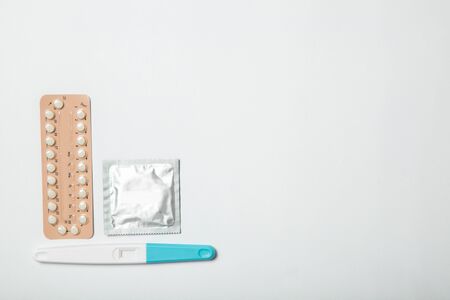1. The Gut-Skin Connection: How Your Digestive Health Affects Your Complexion
Have you ever noticed a breakout after a weekend of unhealthy eating? Or maybe your skin looks dull and tired when youre feeling bloated or dealing with digestive issues? That’s not just a coincidence. More and more research shows that the health of your gut plays a big role in the appearance and condition of your skin.
Understanding the Gut-Skin Axis
Your gut and skin are connected through whats called the gut-skin axis—a communication system between your digestive system and your skin. When your gut is healthy and balanced, it helps reduce inflammation in the body, supports detoxification, and keeps your immune system in check. But when your gut microbiome—the community of bacteria living in your intestines—is out of balance, it can trigger skin problems like acne, eczema, rosacea, and premature aging.
How an Imbalanced Gut Affects Your Skin
An unhealthy gut can lead to a condition known as “leaky gut,” where tiny gaps form in the intestinal lining. These gaps allow toxins, undigested food particles, and bacteria to pass into the bloodstream. This can cause systemic inflammation, which often shows up on your skin.
Common Skin Issues Linked to Poor Gut Health
| Gut Issue | How It Affects Skin |
|---|---|
| Imbalanced Microbiome | Can lead to acne flare-ups and increased oil production |
| Leaky Gut Syndrome | Triggers inflammation that may result in redness and irritation |
| Poor Digestion | Limits nutrient absorption, leading to dull or dry skin |
| Toxin Buildup | Makes it harder for the body to detox naturally, often causing clogged pores or breakouts |
The Role of Detox in Clear Skin
Detoxing isnt just about drinking green juices—its about supporting your liver, kidneys, and digestive system so they can effectively remove waste from your body. When these systems are working well, toxins are less likely to be pushed out through the skin (which can cause pimples or rashes). A healthy gut helps keep this process running smoothly by balancing bacteria, breaking down nutrients efficiently, and reducing internal stress that could otherwise show up on your face.
Everyday Tips to Support Your Gut for Better Skin
- Eat more fiber-rich foods like fruits, vegetables, and whole grains to feed good bacteria.
- Add fermented foods (like yogurt, kefir, sauerkraut) to boost probiotics naturally.
- Avoid processed foods high in sugar and additives that disrupt gut balance.
- Drink plenty of water to help flush out toxins.
- Consider a high-quality probiotic supplement if needed.
Your gut health is more than just a digestion issue—it’s a foundation for glowing skin. By supporting your digestive system with the right foods and habits, you’re also giving your skin what it needs to stay clear, calm, and radiant.
2. The Role of Detoxification in Skin Clarity
When it comes to achieving healthy, glowing skin, whats happening inside your body matters just as much as what you put on your face. One of the most important internal factors is detoxification—how your body gets rid of toxins that could otherwise affect your skins appearance. By supporting detox through gut health, liver function, and digestion, youre giving your skin a real chance to shine.
Why Detox Matters for Your Skin
Your body naturally filters out harmful substances through the liver, kidneys, digestive system, and skin. But when these systems are overwhelmed—due to poor diet, stress, or environmental toxins—your body might push excess waste out through the skin. This can lead to breakouts, dullness, redness, or irritation.
How Gut and Liver Health Impact Detox
The gut and liver play key roles in detoxification. A healthy gut helps eliminate waste efficiently and keeps bad bacteria in check. The liver processes toxins and prepares them for elimination. If either organ isn’t functioning well, toxins can build up and show up on your skin.
Key Functions That Support Clear Skin:
| Body System | Main Detox Role | Skin Benefit |
|---|---|---|
| Liver | Breaks down toxins from food, alcohol, medications | Prevents buildup that can trigger acne or inflammation |
| Gut | Eliminates waste via bowel movements; balances bacteria | Reduces bloating and clears up complexion |
| Digestive Enzymes | Aid nutrient absorption and breakdown of food | Nourishes skin with essential vitamins and minerals |
Simple Ways to Support Your Body’s Natural Detox Process
- Eat Whole Foods: Focus on fruits, vegetables (especially leafy greens), fiber-rich grains, and lean proteins.
- Hydrate Well: Drinking enough water helps flush out toxins through urine and sweat.
- Support Your Liver: Include foods like beets, garlic, turmeric, and cruciferous vegetables like broccoli and Brussels sprouts.
- Improve Digestion: Add probiotics (like yogurt or fermented foods) and prebiotics (like onions, garlic, bananas) to nourish gut bacteria.
A Quick Tip:
If youre constantly dealing with breakouts or dull skin despite using great skincare products, it might be time to look inward. Supporting your bodys detox pathways could be the missing link to finally seeing lasting results.
![]()
3. Key Nutrients for a Healthy Gut and Radiant Skin
When it comes to achieving glowing skin, what you eat matters just as much as what you apply topically. A healthy gut supports better digestion, nutrient absorption, and toxin elimination—all of which reflect on your skin. Let’s explore the essential nutrients that help balance your gut microbiome and give your complexion that natural glow.
Vitamins That Support Gut and Skin Health
Certain vitamins play a dual role by nourishing both your digestive system and your skin. Here are some key ones to include in your daily routine:
| Vitamin | Gut Benefits | Skin Benefits | Food Sources |
|---|---|---|---|
| Vitamin A | Supports gut lining integrity | Promotes cell turnover and reduces acne | Sweet potatoes, carrots, spinach |
| Vitamin C | Aids in iron absorption and immune function | Brightens skin and boosts collagen production | Citrus fruits, bell peppers, strawberries |
| B Vitamins (especially B2, B3, B6, B12) | Aid in energy metabolism and gut flora balance | Soothe inflammation and reduce redness | Eggs, whole grains, lean meats |
| Vitamin D | Makes the gut barrier stronger and reduces inflammation | Evens out skin tone and helps with psoriasis or eczema | Sardines, fortified milk, sunlight exposure |
The Role of Minerals in Gut-Skin Connection
Your body also relies on minerals to maintain optimal gut function and skin appearance. Heres a breakdown:
| Mineral | Main Function in Gut Health | Main Function in Skin Health |
|---|---|---|
| Zinc | Aids digestion and supports healthy gut lining | |
| Selenium | Keeps gut bacteria balanced with antioxidant support | |
| Magnesium |
The Power of Probiotics and Prebiotics
Your gut is home to trillions of bacteria—some good, some bad. Keeping this microbiome balanced is key for both digestion and skin clarity.
Probiotics:
“Good” bacteria that help restore balance in your gut. They can reduce bloating, support immunity, and even calm inflammatory skin conditions like acne or rosacea.
4. Foods That Support Gut Health and Reduce Skin Inflammation
Your diet plays a huge role in supporting your gut health—and in turn, your skin. When you feed your body the right foods, youre not only helping your digestive system but also promoting a clearer, calmer complexion. Heres how you can nourish your gut to help reduce skin inflammation and breakouts.
Fiber-Rich Vegetables
Eating plenty of fiber helps keep your digestive system moving smoothly and supports the growth of good bacteria in your gut. These bacteria help reduce inflammation throughout your body, including your skin.
Top Fiber-Rich Veggies for Gut and Skin Health:
| Vegetable | Benefits |
|---|---|
| Broccoli | High in fiber and antioxidants that combat skin inflammation |
| Sweet Potatoes | Rich in beta-carotene, which supports skin repair and immune function |
| Spinach | Packed with fiber, iron, and vitamin C to boost skin radiance |
Fermented Foods
Fermented foods are natural probiotics. They introduce beneficial bacteria into your gut, helping balance the microbiome. A healthier gut microbiome can lead to fewer flare-ups of acne, eczema, and redness.
Popular Fermented Foods to Try:
- Greek yogurt (look for “live cultures” on the label)
- Kefir (a tangy drinkable yogurt)
- Sauerkraut (fermented cabbage rich in probiotics)
- Kombucha (a fizzy fermented tea packed with good bacteria)
Anti-Inflammatory Ingredients
Chronic inflammation in the gut can show up on your skin as irritation or breakouts. Anti-inflammatory foods help calm both the digestive tract and the skins surface.
Key Anti-Inflammatory Foods:
| Food | Main Nutrient | Skin Benefit |
|---|---|---|
| Turmeric | Curcumin | Fights inflammation and brightens skin tone |
| Berries (blueberries, strawberries) | Antioxidants & Vitamin C | Protects against oxidative stress and signs of aging |
| Fatty fish (salmon, sardines) | Omega-3 fatty acids | Soothe inflamed skin and support hydration |
Simple Tips to Add These Foods to Your Diet
- Add spinach or kale to morning smoothies for an easy fiber boost.
- Munch on raw veggies with hummus as a healthy snack.
- Add sauerkraut or kimchi as a side dish with lunch or dinner.
- Swap sugary drinks with kombucha for a probiotic kick.
Nourishing your gut with these wholesome foods can create a ripple effect—leading to improved digestion, less inflammation, and more radiant skin from the inside out.
5. Lifestyle Habits to Improve Your Gut and Skin
When it comes to achieving glowing skin, what you do every day matters just as much as the products you put on your face. Your gut health is directly linked to your complexion, and by adopting certain lifestyle habits, you can support both a balanced digestive system and radiant skin. Let’s explore some simple yet powerful changes you can start making today.
Stress Management
Chronic stress can disrupt your gut microbiome and trigger inflammation, which may show up as acne, dullness, or redness. Managing stress isn’t just good for your mental health—it’s essential for your skin too. Try activities like:
- Meditation: Just 10 minutes a day can make a difference.
- Deep breathing: Helps calm your nervous system and supports digestion.
- Regular exercise: Boosts mood and promotes better gut motility.
Hydration
Your digestive tract needs water to function properly. When youre dehydrated, waste builds up in your body, potentially leading to breakouts and dull skin. Aim for about 8 cups (64 oz) of water a day—more if you’re active or live in a hot climate.
Signs You Might Be Dehydrated
| Body Signal | What It Means |
|---|---|
| Dry or flaky skin | Lack of hydration inside out |
| Constipation | Your gut needs water to move things along |
| Fatigue | Even mild dehydration affects energy levels |
Sleep Hygiene
Your body heals and detoxifies during sleep. Poor sleep can throw off gut bacteria balance and increase cortisol, leading to inflammation in both the gut and skin. Here are some tips for better sleep:
- Stick to a schedule: Go to bed and wake up at the same time daily.
- Avoid screens before bed: Blue light affects melatonin production.
- Create a calming routine: Warm shower, herbal tea, or reading can help.
Nutrient-Rich Diet & Mindful Eating
The way you eat also plays a big role in how your gut—and skin—feels. Focus on whole foods that nourish beneficial bacteria and reduce inflammation:
| Gut-Friendly Foods | Skin Benefits |
|---|---|
| Leafy greens (like spinach, kale) | High in antioxidants that fight free radicals |
| Fermented foods (yogurt, kimchi, kefir) | Add probiotics that support healthy digestion |
| Berries and citrus fruits | Vitamin C boosts collagen production for smoother skin |
| Nuts and seeds (especially walnuts & flaxseed) | Rich in omega-3s that reduce inflammation |
The Takeaway: Small Steps Matter
You don’t need to overhaul your entire life overnight. Start with one habit—maybe drinking more water or winding down before bed—and build from there. Over time, these small changes will support both your gut health and your skins natural glow.


